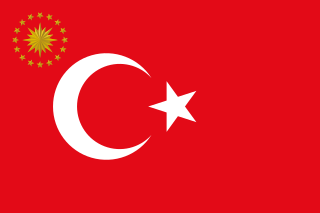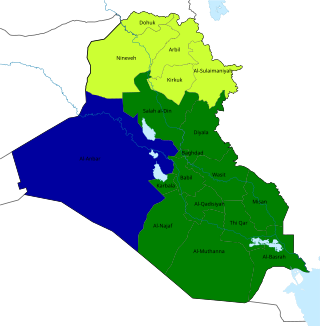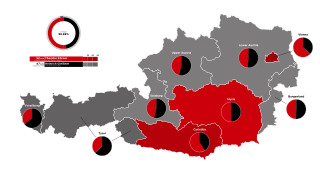
The Legislative Yuan is the unicameral legislature of the Republic of China (Taiwan) located in Taipei. The Legislative Yuan is composed of 113 members, who are directly elected for four-year terms by people of the Taiwan Area through a parallel voting system.

The president of Turkey, officially the president of the Republic of Türkiye, is the head of state and head of government of Turkey. The president directs the executive branch of the national government and is the commander-in-chief of the Turkish military. The president also heads the National Security Council.

The president of Zambia is the head of state and the head of government of Zambia. The office was first held by Kenneth Kaunda following independence in 1964. Since 1991, when Kaunda left the presidency, the office has been held by seven others: Frederick Chiluba, Levy Mwanawasa, Rupiah Banda, Michael Sata, Edgar Lungu and the current president Hakainde Hichilema, who won the 2021 presidential election. In addition, acting president Guy Scott served in an interim capacity after the death of President Michael Sata.

Parliamentary elections were held in Iraq on 30 January 2005 to elect the new National Assembly, alongside governorate elections and a parliamentary election in Kurdistan Region. The 275-member legislature had been created under the Transitional Law during the international occupation. The newly elected body was given a mandate to write a new constitution and exercise legislative functions until the new constitution came into effect. The elections also led to the formation of the Iraqi Transitional Government.

There are three types of elections in Nepal: elections to the Federal Parliament, elections to the provincial assemblies and elections to the local government. Within each of these categories there may be by-elections as well as general elections. Currently three electoral systems are used: parallel voting for House of Representatives and provincial assemblies, Single transferable vote for National Assembly and first past the post for local elections.
Elections in the Philippines are of several types. The president, vice-president, and the senators are elected for a six-year term, while the members of the House of Representatives, governors, vice-governors, members of the Sangguniang Panlalawigan, mayors, vice-mayors, members of the Sangguniang Panlungsod/members of the Sangguniang Bayan, barangay officials, and the members of the Sangguniang Kabataan are elected to serve for a three-year term.

The Parliament of Albania or Kuvendi is the unicameral representative body of the citizens of the Republic of Albania; it is Albania's legislature. The Parliament is composed of no less than 140 members elected to a four-year term on the basis of direct, universal, periodic and equal suffrage by secret ballot. The Parliament is presided over by the Speaker, who is assisted by at least one deputy speaker. The electoral system is based on party-list proportional representation. There are 12 multi-seat constituencies, corresponding to the country's counties.

The National Assembly is the legislative branch of the government of Angola. Angola is a unicameral country so the National Assembly is the only legislative chamber at the national level. The People's Movement for the Liberation of Angola (MPLA) has held a majority in the Assembly since Angolan independence in 1975.

General elections were held in Pakistan on 7 December 1970 to elect members of the National Assembly. They were the first direct general elections since the independence of Pakistan and ultimately the only ones held prior to the independence of Bangladesh. Voting took place in 300 general constituencies, of which 162 were in East Pakistan and 138 in West Pakistan. A further thirteen seats were reserved for women, who were to be elected by members of the National Assembly.

General elections were held in Kenya on 27 December 2002. Voters elected the President, and members of the National Assembly. They coincided with the 2002 Kenyan local elections.

The Constitution of Guyana is the highest governing document in the Republic of Guyana. It came into effect on October 6, 1980, replacing the constitution enacted in 1966 upon its independence from the United Kingdom. The current Constitution of Guyana contains 12 chapters that are further divided into 232 articles. It also contains a preamble and an oath. Since its 1980 enactment, it has gone through multiple amendments.

The National Council of Government was the ruling body in Uruguay between 1952 and 1967. It consisted of nine members, of which six were from the party that received the most votes in general elections, and three from the runner-up party. Generally known as the colegiado system, it had previously existed as the National Council of Administration between 1918 and 1933.

The 1856–57 United States Senate elections were held on various dates in various states. As these U.S. Senate elections were prior to the ratification of the Seventeenth Amendment in 1913, senators were chosen by state legislatures. Senators were elected over a wide range of time throughout 1856 and 1857, and a seat may have been filled months late or remained vacant due to legislative deadlock. In these elections, terms were up for the senators in Class 1.

Presidential elections were held in Austria in 1951, the first time that the President of Austria had been elected by popular vote. A first round of voting was held on 6 May, and with no candidate achieving a majority of the votes, a second round was held on 27 May between the top two candidates, Mayor of Vienna, Theodor Körner representing the Socialist Party's, and Upper Austria Governor Heinrich Gleißner of the Austrian People's Party. Although Gleißner received the most votes in the first round Körner won the runoff with 52% of the vote.

Elections were held on municipal, provincial, republican and federal levels in Yugoslavia from its foundation in 1918 throughout its breakup in 1992.

A constitutional referendum was held in Ethiopia on 1 February 1987. The new constitution would make the country a one-party socialist state with the Communist Workers' Party of Ethiopia as the sole legal party. It was approved by 81% of voters, with a 96% turnout. It was promulgated on 22 February, inaugurating the People's Democratic Republic of Ethiopia.

Early general elections were held in Paraguay on 1 May 1989 to elect the president and Chamber of Deputies. They were the first held since longtime president Alfredo Stroessner was toppled in a military coup on 3 February, seven months after being sworn in for an eighth term. For the first time in several years, the opposition was allowed to contest the elections more or less unmolested; the Communists were the only party that was banned from taking part.

The 1997 Constitution of Uruguay refers to the 1967 Constitution with amendments.

The Assembly of the Representatives of the People is Tunisia's legislative branch of government. The unicameral Assembly replaced the Constituent Assembly and was first elected on 26 October 2014. The legislature consists of 217 seats. Before the 2011 revolution, Tunisia's parliament was bicameral and consisted of an upper chamber called the Chamber of Advisors and a lower chamber called the Chamber of Deputies.
Presidential elections were scheduled to be held in Ukraine on 31 March 2024 according to the constitution, which mandates elections be held on the last Sunday of March of the fifth year of the incumbent president's term of office. However, in response to the Russian invasion of Ukraine, since 24 February 2022 the Ukrainian government has enacted martial law, and Ukrainian law does not allow elections to be held when martial law is in effect.

















